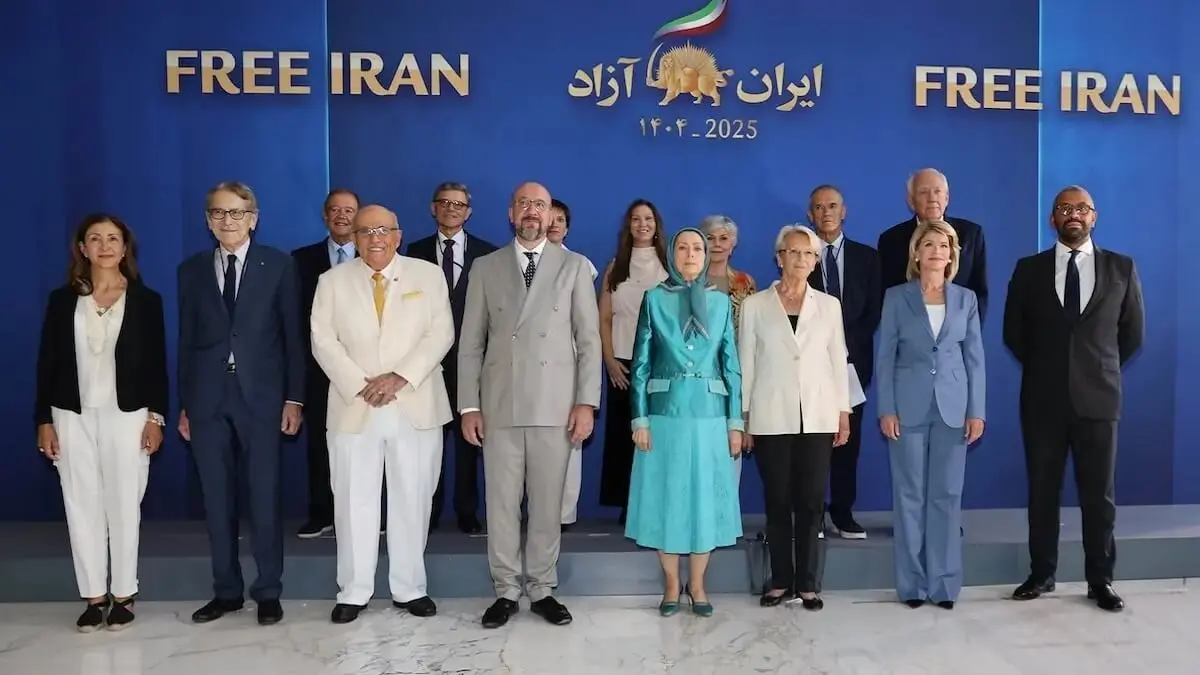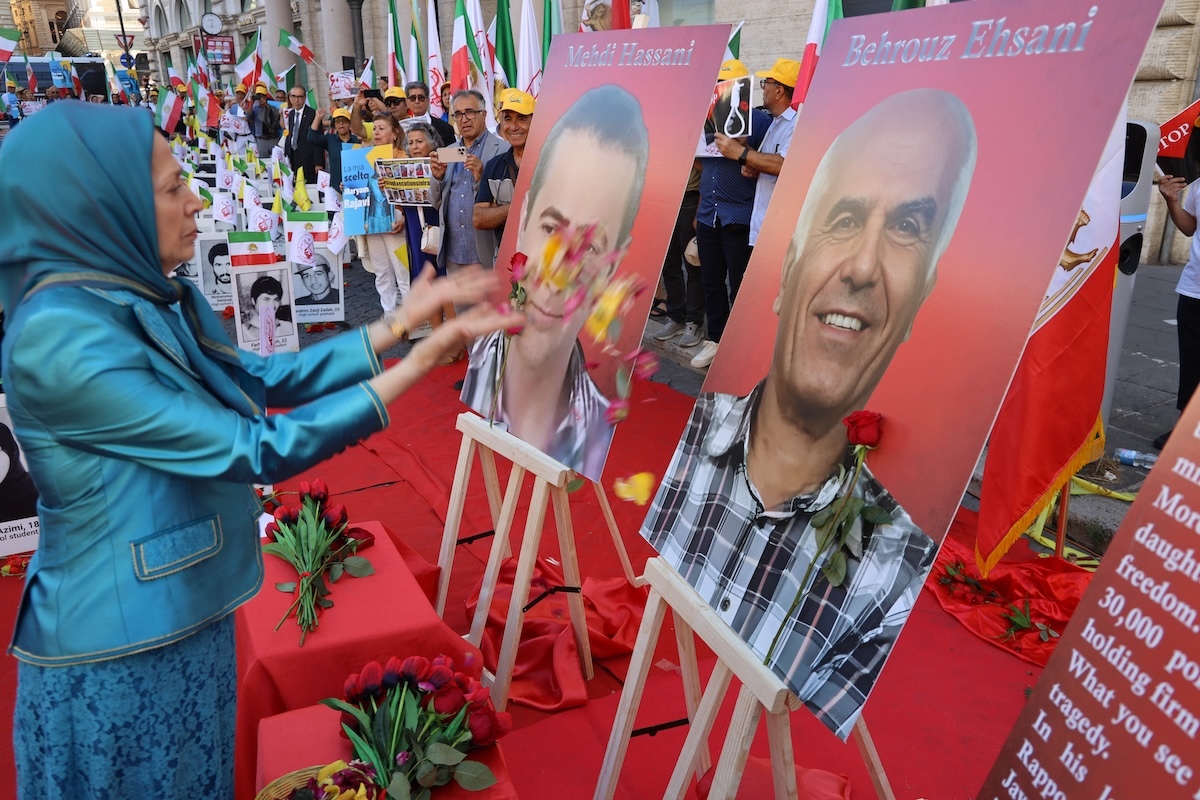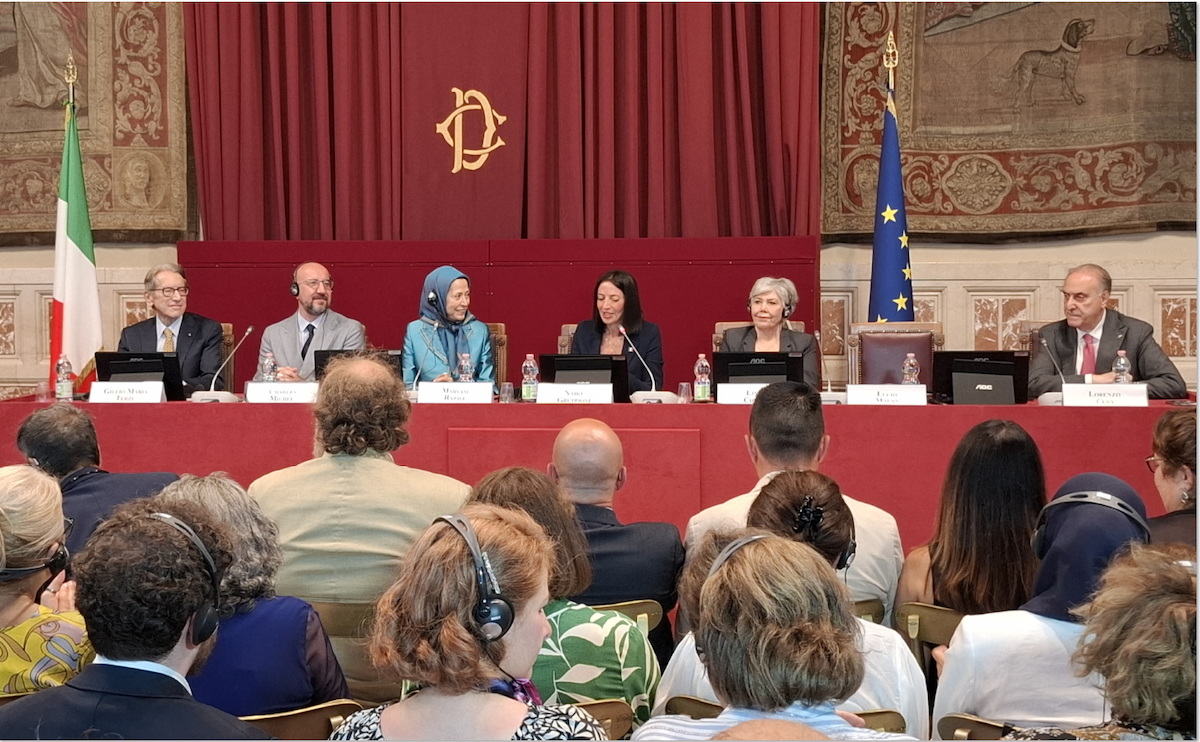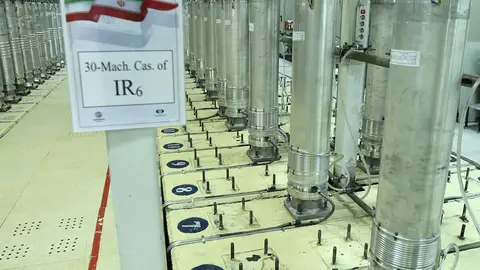Neither Shah nor Mullah: the voice of the Iranian people seeking justice

Prior to this event, she was invited to the Italian Senate, where the majority of senators joined the majority of the Chamber of Deputies in supporting the NCRI's 10-point plan for the future of Iran.
According to this plan, change will come with the establishment of a secular republic based on the separation of religion and state, equality between women and men, no nuclear weapons, no death penalty, no imposed veils or religion, and no authoritarian government. A republic based on the autonomy of regions populated by the country's ethnic groups, peaceful coexistence with neighbors and the rest of the world.

But this path to freedom has been fraught with obstacles, and its price has been immense. More than 100,000 people have given their lives for this cause. It has been a risky journey, between the hope of freedom and the threat of death. “Yet, like a phoenix, the movement is tirelessly rising from its ashes to soar once again toward the heights of freedom,” Mrs. Rajavi recalled.
Despite the suffering, executions, and massacres that the Iranian people have endured, some who are nostalgic for the monarchy are deluding themselves into thinking that history is turning in their favor and that religious dictatorship can be replaced by another dictatorship—that of the throne. This is undoubtedly why Reza Pahlavi, son of the former monarch, is seeking the support of part of the Revolutionary Guards, the ideological army of the Islamic Republic. He is calling for talks with the regime's military and security forces to “explore their potential role in the fall of the regime and the establishment of a new government.”

But these alleged contacts with certain elements of the regime or the Revolutionary Guards, supposedly to facilitate a democratic transition, are nothing more than a cynical maneuver to prolong the life of the faltering regime.
“From the Shah to the mullahs, and now from the mullahs to the Shah? A sad irony of history?” Maryam Rajavi's answer is clear: no. We cannot turn back the clock. The Pahlavi dictatorship cannot return to power by trampling on the blood of hundreds of thousands of freedom fighters—even under the guise of modernism.
The Iranian opposition leader forcefully reiterated that religious dictatorship, in all its forms, must be rejected without compromise. She emphasized that the National Council of Resistance of Iran (NCRI) had, from the outset, distanced itself from both the Shah and the mullahs, as neither is compatible with democracy.
Among the other prominent figures who spoke were Charles Michel, former President of the European Council; Matteo Renzi, former Italian Prime Minister; Michèle Alliot-Marie, former French Minister of Foreign Affairs, Defense, Interior, and Justice; and James Cleverly, former British Minister of Foreign Affairs and Home Affairs.
Mrs. Rajavi highlighted the NCRI's proposal to form a National Solidarity Front, which will be based on three pillars:
1. It unites the forces committed to establishing a democratic and independent republic.
2. It categorically rejects religious dictatorship, the regime of the Supreme Leader, and all factions affiliated with it.
3. It is firmly based on the principle of the separation of religion and state.
In this way, the diversity of Iranian society will become its strength in the face of its oppressors, and the overthrow of the regime and the establishment of sovereignty will become possible thanks to the roadmap of the Iranian Resistance.










